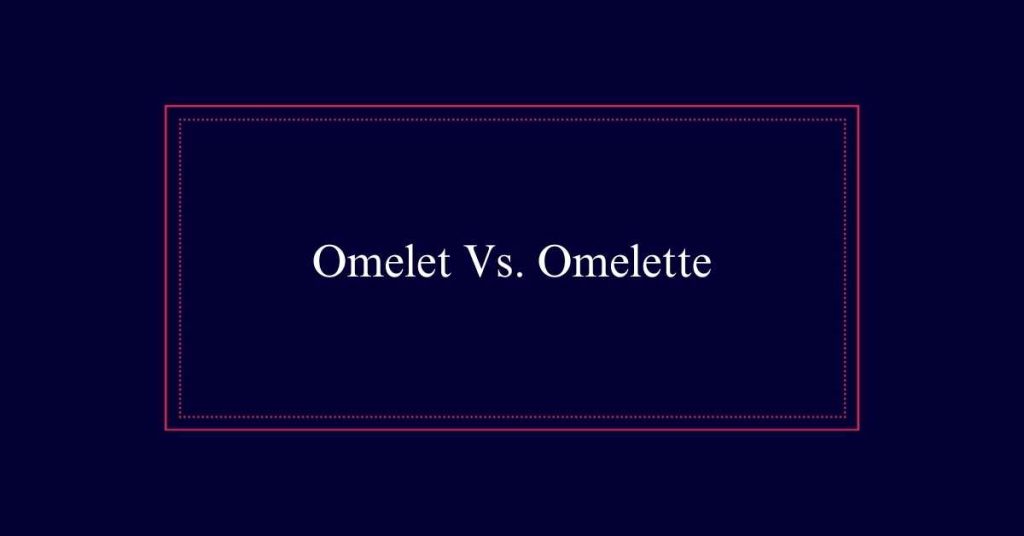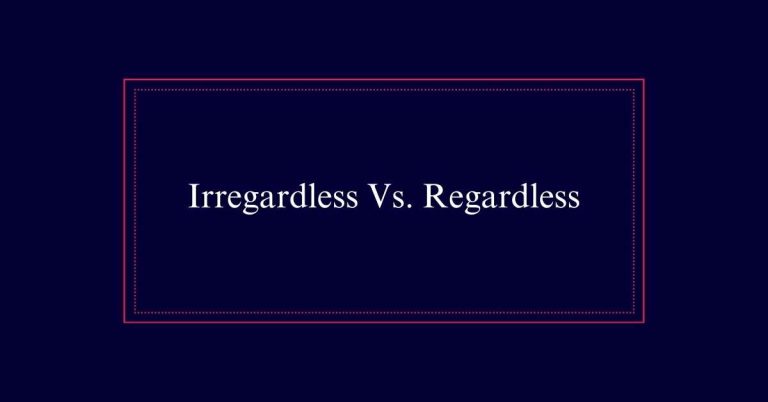Omelet Vs. Omelette
Both “omelet” and “omelette” are correct spellings, with “omelet” being preferred in American English and “omelette” in British English. The difference stems from the dish’s French origins, where the modern French spelling is “omelette.” This distinction aligns with the broader patterns of regional preferences in English spelling.
Origin of ‘Omelet’
The word ‘omelet’ has its origins in the seventeenth century. It is the standard spelling in American English today.
The British spelling, ‘omelette,’ aligns with the modern French version. Both spellings are correct, but the choice depends on the audience. In American English, ‘omelet’ is more common, whereas ‘omelette’ is preferred in British English.
The spelling ‘omelet’ was adopted in the seventeenth century and has remained in use in the United States. The term has evolved, but its roots are firmly planted in history. This distinction between the two spellings reflects broader linguistic trends and regional preferences.
Origin of ‘Omelette’
Rooted in modern French, the spelling ‘omelette’ reflects its culinary heritage. The word originates from the French term ‘omelette,’ which itself evolved from ‘amelette.’ This, in turn, was derived from the older French word ‘alemelle,’ referring to a thin layer or blade, hinting at the dish’s flat and folded nature.
The French influence is evident in the spelling and pronunciation, which has been retained in British English. Historically, the term underwent several changes before settling into its current form. The adoption of ‘omelette’ in British English underscores its strong ties to French cuisine.
American Vs. British Spelling
American and British English differ in their spelling of the word for the popular egg dish, with ‘omelet’ used in the United States and ‘omelette’ in the United Kingdom. This divergence highlights broader distinctions between the two versions of English. While Americans prefer the simpler ‘omelet,’ the British favor the French-influenced ‘omelette.’
| Region | Preferred Spelling |
|---|---|
| United States | Omelet |
| United Kingdom | Omelette |
Historical Background
Understanding the historical background of the word ‘omelet’ reveals how language and cuisine intersect across different cultures. The term ‘omelet’ has evolved over centuries. Its roots can be traced back to the French word ‘omelette,’ a modern spelling that gained prominence in the French culinary world.
However, the American spelling ‘omelet’ dates back to the seventeenth century. This divergence in spelling highlights the nuances in language development between American and British English. As culinary practices spread globally, the two spellings became regionally preferred. The American version, ‘omelet,’ is widely accepted in the United States, while ‘omelette’ remains standard in British English.

‘Omelet’ in American English
To summarize, the spelling ‘omelet’ is preferred in American English due to historical and linguistic differences. This preference stems from the seventeenth century, aligning with early American English conventions. The ‘omelet’ spelling simplifies the word, reflecting a trend in American spelling towards more phonetic representations.
The use of ‘omelet’ is standard in American English, appearing in cookbooks, menus, and culinary discussions. This spelling is familiar to American audiences and avoids confusion. While ‘omelette’ is recognized, ‘omelet’ is the dominant form in the U.S.
‘Omelette’ in British English
In British English, the spelling ‘omelette’ is preferred and aligns with modern French usage. This choice reflects the influence of French cuisine and language on British culinary traditions.
The term ‘omelette’ not only captures the dish’s authentic origins but also adheres to the spelling conventions prevalent in the United Kingdom. British cookbooks, menus, and culinary guides typically use ‘omelette,’ reinforcing its acceptance and consistency.
This spelling is considered more traditional and sophisticated, echoing the French roots of the dish. While both spellings are understood, ‘omelette’ is the norm in British contexts.
Usage Examples
Many American cookbooks feature recipes for fluffy omelets, highlighting regional preferences in spelling. Classic examples include egg white omelets, often noted for their health benefits despite a less favorable reputation for taste.
You will also find recipes for unique dishes, such as cheese omelets, which many consider essential. On the other hand, British cookbooks might suggest making omelettes with chanterelles, appealing to a more gourmet palate.
Both spellings, ‘omelet’ and ‘omelette,’ appear in various culinary contexts, reflecting their widespread use. The choice of spelling can often provide clues about the origin of the recipe and the intended audience.
Regional Preferences
Reflecting distinct linguistic traditions, the spelling choice between ‘omelet’ and ‘omelette’ often depends on regional preferences. In the United States, ‘omelet’ is the standard spelling. This version has been in use since the seventeenth century.
Conversely, in the United Kingdom and many other English-speaking countries, ‘omelette’ is preferred. This spelling aligns with the modern French version of the word.
The choice of spelling is often influenced by the audience’s familiarity. American publications and menus typically use ‘omelet,’ while British publications lean towards ‘omelette.’ These regional preferences highlight the rich diversity within the English language.
French Influence
The French roots of the word ‘omelette’ highlight its culinary origins. The term ‘omelette’ derives from the French language, reflecting the dish’s deep association with French cuisine. The modern French spelling ‘omelette’ is used in British English, emphasizing the influence of French culinary traditions.
Historically, different versions of the word appeared in French, but the spelling ‘omelette’ became standardized. This French influence is evident in the dish’s preparation techniques and variations, which remain integral to French cooking. The word ‘omelet,’ adopted by Americans, simplifies the spelling while retaining its essence.







